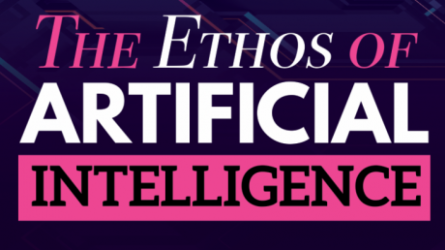Many cognitive scientists and philosophers think intelligence requires self-awareness and intention. Consciousness seems inextricably linked to intention. When we are conscious, we are intentionally directing our thinking toward something. It could be an object or person in our immediate field of perception, a difficult problem that needs solving, or it could be a memory that we’ve deliberately called to mind, or some combination.
The other distinguishing feature of consciousness is self-awareness. When we are conscious, we are aware of what we are directing our thinking toward; the object of our thought. Just as important, we are also aware of ourselves. We are aware that we, ourselves, are directing our thinking toward something. We are self-aware or self-conscious.
AI disembodied chatbots are not self-aware and they do not answer prompts with intention.
From the book, The Ethos of Artificial Intelligence, Chatbots and Intention
